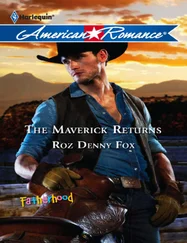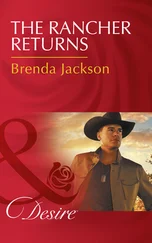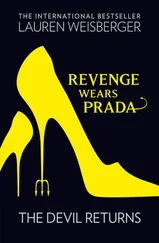T HAT MARCH,Nick Geraci’s father came to New York -the first time he’d been there since Nick moved from Cleveland. Naturally, he drove. All however many thousand miles from Arizona, which he somehow did alone and in three days. To the end, he’d be Fausto the Driver.
When he first arrived, he seemed content to simmer in the self-contained cocoon of his own sulky regret, staring out at his son’s swimming pool. He ran out of Chesterfield Kings. Charlotte offered him a carton of hers, which he said would be fine. They were a ladies’ brand, but he said a friend of his smoked this kind and he was used to them, in a pinch. Nick winked and asked if that meant Miss Conchita Cruz. “Shut up about things you don’t know nothin’ about, eh? You want money for these?” He reached for his money clip.
“It’s fine, Dad. No.”
“You’re a big shot, but I pay my own way, understood?”
“We just want you to have a good time, okay?”
“That’s a lot of pressure on me,” he said. “Why don’t you all just mind your own business? And take the money, unless my money’s no good.”
“It’s no good in this house, Dad,” Nick said. “You’re our guest.”
“Guest?” he scoffed. “Don’t be stupid, you big stupid. I’m family.”
“It’s nice to see you,” Nick said, still refusing the money and embracing his father, who did in fact embrace him back, and they kissed each other’s cheeks.
In the morning, there were five bucks under Charlotte ’s purse.
The next day, unseasonably warm for New York in March, they went as a family for lunch at Patsy’s, Geraci’s favorite Italian restaurant in the city, where he practically had his own table upstairs, and then for a cruise on the Circle Line, which had been Charlotte’s idea. It offered views of New York that even a native like her never got to see otherwise, plus it seemed like a congenial afternoon for a man who spent every day brooding and staring at the water. Nick and Charlotte had taken the cruise on an early date, but their girls had never done it before. Barb was a freshman in high school now and could barely go anywhere without her friends, a squadron of whom met her at the pier. Bev, though, who looked as old as Barb but was only eleven, stayed next to her grandfather, asking him things about Ellis Island-which, as a little boy, was the last time Fausto had been to New York. By the time they got to Roosevelt Island, she’d somehow gotten him to give her lessons in Sicilian dialect.
After they’d passed the Polo Grounds but before the desolation of the northern tip of Manhattan had segued from hard to believe to deathly boring, Fausto, his spirits as buoyant as they got, took his son aside and said that he’d actually come to New York on business.
Nick frowned and cocked his head.
“Message from the Jew,” he said, meaning Vince Forlenza. “Long story. This ain’t the place. How far are we from Troy?”
“ Troy what? Troy, New York?” Nick Geraci was pretty sure his father had never told him a long story of any kind.
“No, big shot. Troy with Helen and the big fuckin’ horse. Yes, Troy, New York.”
“We need to go to Troy for you to tell me what you need to tell me?”
“We don’t need to go to Troy at all. We could do what we need to do at your house or at your precious Henry Hudson Political Club, any place we can talk that’s-”
“Patrick Henry,” Nick corrected. His headquarters in Brooklyn. His office.
“Wherever. Let me tell you something. I want to go to Troy. All right? Think you can begrudge a dying old man that one little thing?”
“Since when are you dying?”
“Since the day I was born.”
“I thought you were going to say since the day I was born.”
“You give yourself too much credit, hotshot.”
Turned out, Fausto had heard that there were cockfights in Troy, supposedly the top place in the country. It was upstate, and thus presumably under the direct or indirect control of the Cuneo Family. Fausto had always been a fan of cockfights and over the years had dropped enough money at a joint in Youngstown that by rights his name should have been on the deed. Tucson had cockfights, but they were run by Mexicans, and Fausto thought they were crooked.
“You’re kidding,” Nick said. “That place in Youngstown had birds with cocaine on their feathers, birds pumped full of blood thinner so they’d bleed like mad in a loss and become a huge underdog and then go off the drugs and win. Birds with any of a thousand kinds of poison on their spurs. I can’t begin to remember all the different ways they made birds look sick when they were ready to kill and made others look healthy when they were about to die.”
“You’re naive. Mexicans are worse. Geniuses, though, gotta admit.”
They didn’t need to leave until midafternoon, but Fausto Geraci was up the next morning at four, studying road maps and ministering to the pampered engine of his Olds 88. He insisted on driving, of course. Geraci’s usual driver-Donnie Bags, his third cousin-was just a guy who drove the car, but Nick Geraci’s father was a true wheel man. Someone looking at him behind the wheel and ignoring everything else would have said he drove like an old man: huge eyeglasses, head bent over the wheel, gloved hands at ten and two, radio off so he could concentrate on the road. But he’d always driven like that. Meanwhile, he weaved that Rocket 88 through traffic like the Formula One racer he should have been, swerving from lane to lane, cutting into spaces that seemed too small but never were. Except for the cars and trucks he’d wrecked on purpose and notwithstanding the stretch he did in Marion for vehicular homicide (a cover-up he participated in, loyally, after the Jew’s joyriding fourteen-year-old niece accidentally greased an old lady), Fausto Geraci had never had an accident. He had a sixth sense for where the cops were, too, and, on the rare occasions he was pulled over, could size up the officer and know instantly whether to hand him the badge indicating that he was a retired member of the Ohio Highway Patrol (the badge was real, picked up, crazily enough, at a yard sale) or whether to slip him the badge with a folded-up fifty underneath it. He kept one, prefolded, in the glove box, between the badge and the car’s registration. Once, when Nick was twelve, he took the money. His father gave him an epic beating: the motivation, in fact, for him to start calling himself “Nick” (until then he’d been “Junior” or “Faustino”) and to sign up for boxing lessons.
Nick waited his father out. Whatever the story was, he’d tell it when he was good and ready. Whatever it was, it was something big. He had an air about him like he’d finally been given the kind of job suitable for a man of his obvious talents.
Finally, as they got to the other side of the George Washington Bridge and whipped onto the shoulder to pass two semis, Fausto Geraci veered back onto the road, took a deep breath, and began to tell his son everything he’d learned-personally, by the way-from Vinnie Forlenza.
“You listening?”
“All ears,” Nick said, tugging his ears.
Apparently, Sal Narducci got tired of waiting around for the Jew to die. But even though Laughing Sal probably killed a stadium full of men in his time, he didn’t have the balls to kill his boss. What he did was, he tried to humiliate Forlenza into stepping down, first by getting someone to sabotage that plane-yes, that plane-and then by coming up with the idea of kidnapping Nick from the hospital and hiding him, which was supposed to make Forlenza look reckless and weak, and which probably at least to a point did the trick.
Читать дальше











